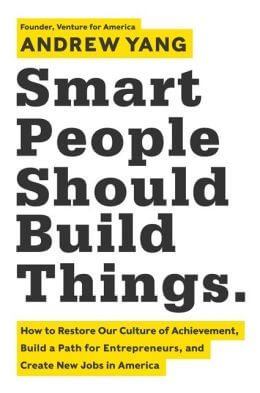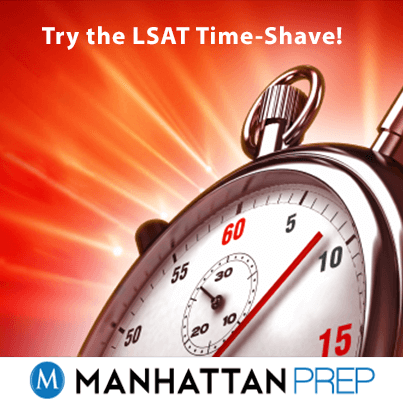Advanced LSAT Negation Techniques: Part I of III
 You’re several minutes into the logical reasoning section and on question five. It’s a necessary assumption question. Great! You know how to do those. You read the argument and boil the core down to:
You’re several minutes into the logical reasoning section and on question five. It’s a necessary assumption question. Great! You know how to do those. You read the argument and boil the core down to:
Premise: Richie hates snails.
Conclusion: Richie will stomp on that snail over there.
You are relieved to spot the assumption immediately: If Richie hates something, he will stomp on it.
Reading through the answer choices, you look for one that matches. You get rid of C, D, and E easily. A and B remain, and they both look pretty good because they’re both about stomping and hating snails. Luckily, you know what to do at this point: Negate each answer to see what happens. If negating (making it untrue) wrecks the argument, that means it’s necessary, i.e. your answer!
But wait. B reads, “If Richie hates something, sometimes he kills it.”
You’re at a loss on how to negate that. Do you say, if Richie doesn’t kill something, he doesn’t hate it? Or if he doesn’t hate it, he’ll kill it? Or if he does hate it, he won’t kill it? How do you negate an “if” statement?
To negate a conditional, negate the necessary clause. Leave the conditional clause (the “if” clause) alone. In this case the correct negation would be the third one above: If Richie hates something, he won’t sometimes kill it (or he’ll never kill it, same thing).
What happens to our argument when we put it that way? Destroyed! Answer choice B is correct.
Come back to the blog next week for Part II of Advanced Negation Techniques.
Andrew Yang: “Smart People Should Build Things” Excerpt 2
Below is an excerpt from Andrew Yang‘s new book, Smart People Should Build Things: How to Restore Our Culture of Achievement, Build a Path for Entrepreneurs, and Create New Jobs in America, which comes out in February 2014. Andrew was named Managing Director of Manhattan GMAT in 2006, Chief Executive Officer in 2007, and President in 2010. He left Manhattan GMAT in 2010 to start Venture for America, where he now serves as Founder and CEO.
 The Prestige Pathways.
The Prestige Pathways.
Let’s imagine a very large company. It is a leader in its industry and much admired by its peers. It invests a tremendous amount of money—literally billions of dollars a year—in identifying, screening, and training its many employees. Those employees who are considered to have high potential are sent to special training programs at substantial additional cost. Happily, these top training programs are considered to be among the best in the world. After these employees complete their training, the company encourages them to choose for themselves the division in which they’d like to work. Employee preferences are deemed to be the most efficient way of deciding who works where.
This seems like a good system, and it works well for a long time. However, perhaps predictably, many of its most highly rated employees eventually become drawn to the finance and legal divisions because these divisions have very effective recruitment arms, are more visible, pay better, and are thought of as providing a more intellectual level of work. Over time, proportionally fewer of the top recruits go toward the management of the company or the company’s operations. The company’s basic training division is considered a backwater, with low pay and low recognition. And only a relative handful of employees go toward research and development or the launching of any new products.
Take a second to think about the company described above. What do you think will happen to this company as time passes? And if you think that it’s not set on a path to success, what would you do to fix it? This company reflects, in essence, the economy of the United States of America.
If you are a smart college student and you want to become a lawyer and go to law school, what you must do has been well established. You must go to a good school, get good grades (already accomplished, for many), and take the LSAT (a four-hour skill test). There is no anxiety in divining the requirements, as they are clearly spelled out. Most undergrads, even those with little interest in law school, know what it takes to get in. The path location costs are low.
The same is true if you want to become a doctor. Becoming a doctor is hard, right? Sort of. It is arduous and time-consuming, but it is not hard if you have certain academic abilities. You must take a battery of college courses (organic chemistry being the most infamous and rigorous of them) and do well, study for the MCAT (an eight-hour exam), and spend a summer or even a year caddying for a researcher, doctor, or hospital. These are time-consuming hoop-jumping tasks, to be sure, but anyone with a very high level of academic aptitude can complete them.
If you attend an Ivy League university or similar national institution, legions of suit-wearing representatives from the big-name investment banks and consulting firms will show up at your campus and conduct first-round interviews to fill their ranks each year, even in a down period (as with the recent years following the financial crisis). They will spend millions of dollars enlisting interns and educating the market annually. Most freshmen have no idea what management consulting is, yet seniors can rattle off the distinctions of different firms with little difficulty. All undergraduates have friends in the classes above them who have gone through this process and gained analyst or associate positions at major investment banks and consulting firms.
Read more
Manhattan Prep’s Oh What Fun! Celebration Wraps Up
 Today wraps up our “Oh What Fun!” celebration! Manhattan Prep’s first-ever 12-day holiday celebration was a great success and we hope that everyone got the chance to enjoy all of our exclusive promos, contests, and free study materials.
Today wraps up our “Oh What Fun!” celebration! Manhattan Prep’s first-ever 12-day holiday celebration was a great success and we hope that everyone got the chance to enjoy all of our exclusive promos, contests, and free study materials.
If you’ve missed any of this year’s celebration, not to worry, we still have a few promotions going on. Our Black Friday Sale for $150 off all December GMAT classes ends December 15, 2013, with code “BLACKFRIDAY150.” There are still some spots open in our two December online classes, which you can sign up for here and here. Located in NYC? Come join us in-person for our classes beginning on Dec. 14th and Dec. 15th.
We’re also still offering a free download to our 1-year access GRE Challenge Problem Archive. Remember to enter the code “OWFGRECHALLENGE” at checkout.
To keep the giving going and the holiday spirit alive, we are very excited to share today’s final celebration! We will be collecting non-perishable food to be donated to New York’s City Harvest now through Dec. 20th. Our goal is to collect a minimum of 200 food items including but not limited to: canned goods, peanut butter, mac-n-cheese, cereal, soups, pastas, etc. We will also be collecting children’s toys to be donated to the Marine Toys for Tots Foundation. Our goal is to collect a minimum of 50 new/unwrapped toysto be distributed to needy children in NYC. Finally, we are also collecting warm clothing to be donated to New York Cares Coat Drive. Our goal is to collect a minimum of 50 new or gently used coats, sweaters and blankets to be distributed to New Yorkers in need. Donations may be made at 138 West 25th St, 7th Fl. New York, NY 10001. Let’s make this season brighter for our community and those in need.
Lastly, be sure to check our Facebook page tomorrow, where we will officially announce this year’s “Oh What Fun!” winners of the free GMAT course and the $250 Amazon Gift Card.
A big thank you to everyone in our social community who participated in this year’s “Oh What Fun!” festivities! Enjoy the remainder of the holiday season and best of luck with your studies!
Just starting to study for the February LSAT and worried about pacing? Try the time shave.
 The December LSAT is over and done! You know what that means. One: Binge holiday shopping. Or just holiday binging. Or both. Two: December test refugees and other February test-takers are gearing up to prepare for the Valentine’s month exam. As we enter the beginning of this study season, I want to share a tool that might be useful to those of you facing a particular breed of LSAT challenge.
The December LSAT is over and done! You know what that means. One: Binge holiday shopping. Or just holiday binging. Or both. Two: December test refugees and other February test-takers are gearing up to prepare for the Valentine’s month exam. As we enter the beginning of this study season, I want to share a tool that might be useful to those of you facing a particular breed of LSAT challenge.
I once worked with a student who came in every week reciting the same outcome of her practice. Whenever she did sections untimed, she rocked them. She scored in the 160s, her goal range, and did so consistently. But as soon as she set the clock, her score plummeted fifteen points–consistently. The kicker? She wasn’t even taking that much more time when she wasn’t on the clock.
This student–we’ll call her Charmayne–needed to trim about eight minutes off her logic games section and ten minutes off each logical reasoning section. So pacing was something to work on, sure. But it was clear that the extra time wasn’t the only source of her higher scores (and that lack of it wasn’t the only source of her lower scores). When she felt herself on the clock, she’d snap into panic mode, abandon or forget strategies, and fly through the test wildly. Picture a woman in a blindfold, swinging her arms to try to hit cartoon As, Bs, Cs, Ds, and Es swarming around. Like that.
It occurred to us that one reason she was having a hard time improving her pacing was the paralyzing anxiety she felt as soon as the virtual LSAT proctor entered the scene.
Read more
Free LSAT Events This Week: December 8 – December 14
 Here are the free LSAT events we’re holding this week. All times local unless otherwise specified.
Here are the free LSAT events we’re holding this week. All times local unless otherwise specified.
12/8/13 – Online- Free Trial Class– 2:00PM-5:00PM (EST)
12/8/13 – New York, NY- Free Trial Class– 5:30PM- 8:30PM
Looking for more free events? Check out our Free Events Listings Page
Mary’s LSAT Morning-Of Cheat Sheet
 You aren’t allowed to take into the LSAT a cheat sheet of key rules, but what if you were? I made one for you.
You aren’t allowed to take into the LSAT a cheat sheet of key rules, but what if you were? I made one for you.
Don’t sneak it in (not that you could—my bike map was confiscated), but maybe give it a read the morning of, or print out a copy to review at stoplights on the way there.
Better yet, use the idea as inspiration to make your own. Remember when as a kid you’d be assigned flashcards, and you thought the point was the set of cards, itself, when really it was making the cards that taught you the material (clever teachers!)? Creating your own one-pager can be a great study tool during the final few days before the test.
Here’s mine:
1. On matching questions, principle questions, and assumption family questions, be sure to characterize the conclusion of the argument you’re trying to match, find a principle to support, or analyze. I boil conclusion characterization down to two categories: room for doubt, and no room for doubt. “Room for doubt” conclusions rely on terms like: may, could, likely, probably, possibly. “No room for doubt” conclusions rely on stronger language: will, must, should, is, does. The right answer choice will respond correctly to the type of conclusion you’re dealing with.
2. On weaken and strengthen questions, be suspicious of terms in the answer choice that make it vague: some, sometimes, often, many. (Because remember, “many” just means “some,” and “some” just means “more than one.”) Also be wary of any answer choice that could “go either way”—that in one interpretation strengthens, but in another arguably valid interpretation, could weaken.
3. Only, the only, and only if. Only dogs bark = It barks only if it’s a dog = The only thing that barks is a dog = If it barks, it’s a dog. All are diagrammed: B –> D
4. Unless is “if not.” Don’t go unless I tell you to = If I don’t tell you to, don’t go, i.e. ~Tell you –> ~Go
Read more
Andrew Yang: “Smart People Should Build Things” Excerpt 1
Below is an excerpt from Andrew Yang‘s new book, Smart People Should Build Things: How to Restore Our Culture of Achievement, Build a Path for Entrepreneurs, and Create New Jobs in America, which comes out in February 2014. Andrew was named Managing Director of Manhattan GMAT in 2006, Chief Executive Officer in 2007, and President in 2010. He left Manhattan GMAT in 2010 to start Venture for America, where he now serves as Founder and CEO.
 Smart People Should Build Things.
Smart People Should Build Things.
I believe there’s a basic solution to our country’s economic and social problems. We need to get our smart people building things (again). They’re not really doing it right now. They’d like to. But they’re being led down certain paths during and after college and told not to worry, they can figure it out later.
Take me, for instance. I wasn’t very enterprising when I graduated from Brown in 1996. I had a general desire to be smart, accomplished, and successful—whatever that meant. So I went to law school and became a corporate attorney in New York. I figured out I was in the wrong place after a number of months working at the law firm. I left in less than a year and cofounded a dot-com company, Stargiving, which helped raise money for celebrity-affiliated nonprofits. It was extraordinarily difficult. My company failed spectacularly, but I recovered. I went to work for a mobile software company, Crisp Wireless, and then a health care software company, MMF Systems, over the next five years, eventually becoming the CEO of a test-prep company, Manhattan GMAT, in 2006.
I spent five years running Manhattan GMAT, helping young people get into business school. I taught our corporate classes of investment banking analysts and consultants at Goldman Sachs, McKinsey and Company, JPMorgan Chase, Morgan Stanley, and Deloitte, as well as hundreds of individual students over the years. Some were exactly where they wanted to be. But there seemed to be just as many top-notch young people who wondered why they didn’t like their jobs more. They sought a higher sense of engagement with their work and their careers. Sometimes they would put words to what they were looking for; they’d say they wanted “something entrepreneurial” or “to be really excited about something.”
Read more
Manhattan Prep Celebrates the Holidays with “Oh What Fun!”
 We are so excited today to announce the launch of “Oh What Fun!,” Manhattan Prep’s first-ever, 12-day holiday celebration! Everyday between today and December 12, 2013, we will be offering exciting promotions, gifts, and contests that are inspired by the spirit and joy of the holiday season.
We are so excited today to announce the launch of “Oh What Fun!,” Manhattan Prep’s first-ever, 12-day holiday celebration! Everyday between today and December 12, 2013, we will be offering exciting promotions, gifts, and contests that are inspired by the spirit and joy of the holiday season.
“Oh What Fun!” deals include $150 off GMAT, LSAT, and GRE courses in the month of December, 50% off strategy guides, free workshops, and AMEX giftcards, offering you unbeatable prices and more ways to save throughout the holiday season.
Here’s how it works: Everyday beginning today and running through December 12, 2013, we will unlock one holiday offer per day for our social media communities. We invite you to come join the fun on Facebook and Twitter so that you don’t miss any of our student-focused holiday deals! You can also use the hashtag #ohwhatfun to connect with us and the entire Manhattan Prep community this holiday season.
The giveaway begins today and we’re offering 50% off all of our individual LSAT, GRE, and GMAT, Strategy Guides. Head on over to any of Manhattan Prep’s Facebook pages to redeem today’s code and to read the terms and conditions.
We hope you’re as excited as we are for this beautiful time of year. Oh what fun this is going to be!
Free LSAT Events This Week: December 1 – December 7
 Here are the free LSAT events we’re holding this week. All times local unless otherwise specified.
Here are the free LSAT events we’re holding this week. All times local unless otherwise specified.
12/2/13 – Online- Free Trial Class– 8:00PM-11:00PM (EST)
12/2/13 – Austin, TX- Free Trial Class– 6:30PM- 9:30PM
12/2/13 – Los Angeles, CA- Free Trial Class– 6:30PM- 9:30PM
12/2/13 – La Jolla, CA- Free Trial Class– 6:30PM- 9:30PM
12/3/13 – Irvine, CA- Free Trial Class– 6:30PM- 9:30PM
12/4/13 – Washington, DC- Free Trial Class– 6:30PM- 9:30PM
12/4/13 – Toronto, Canada- Free Trial Class– 6:30PM- 9:30PM
12/7/13 – Online – Free Trial Class: Games Intensive– 2:00PM- 5:00PM (EST)
Looking for more free events? Check out our Free Events Listings Page
